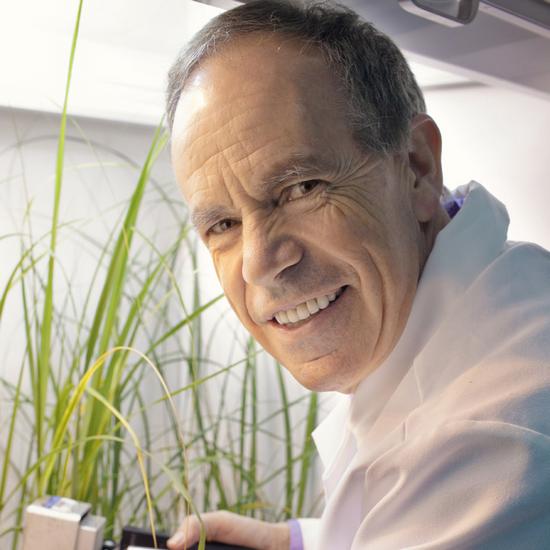Stephen Long is a plant environmental physiologist who studies photosynthesis in crops. His research has increased our understanding of how global climate change is affecting plants, and is helping to inform approaches to increasing crop yields through improving the efficiency of photosynthesis.
Stephen researches how rising carbon dioxide and ozone levels affect photosynthesis at a molecular level and how these changes could be mitigated by increasing use of herbaceous energy crops. He has identified the so far most productive plants known in the wild and ascertained what sets these plants apart. He was also the first to show the potential of tropical Miscanthus grasses for sustainable bioenergy.
Stephen extends his work on how plants respond to environmental changes at a molecular level to large-scale experiments in the field. He is the author of over 400 scientific publications and has won the British Ecological Society Marsh Award for Climate Change Research. He has given briefings on food security and bioenergy to the US President, the Vatican and Bill Gates.
Subject groups
-
Patterns in Populations
Environmental biology, Biological modelling
-
Molecules of Life
Biochemistry and molecular biology
-
Earth and Environmental Sciences
Agricultural and forest science

